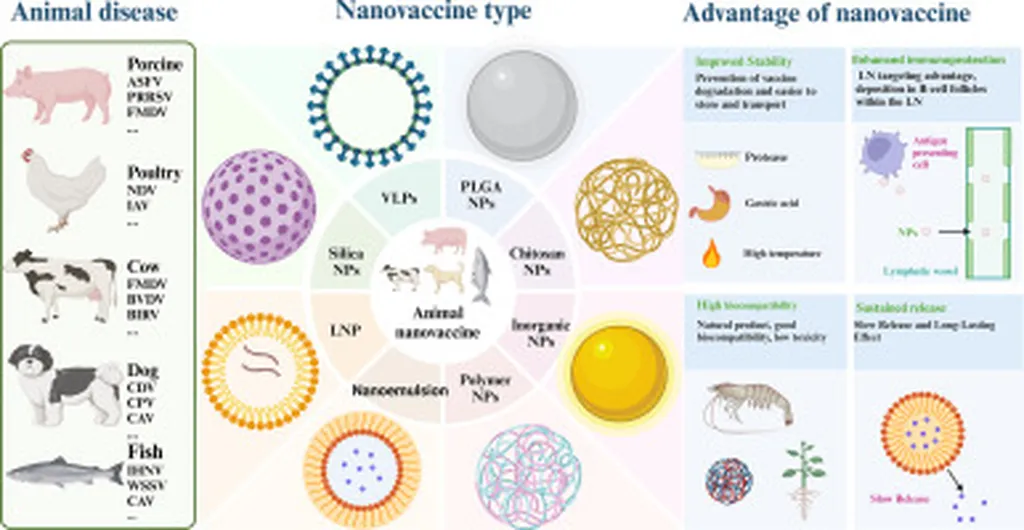In a significant stride towards combating the ever-evolving SARS-CoV-2 virus, researchers have developed a novel biomimetic nanovaccine that shows promise in inducing broad-spectrum neutralizing antibodies in rodents. This innovative approach, detailed in a study published in the Journal of Virology, could potentially reshape the landscape of vaccine development, with implications extending to the agriculture sector.
The study, led by Weiqi Wang from the Changchun Veterinary Research Institute, Chinese Academy of Agricultural Sciences, introduces a self-adjuvant-effect biomimetic nanovaccine. This nanovaccine is designed to counteract not only the current SARS-CoV-2 variants but also prospective ones. The key to this innovation lies in the use of dendritic mesoporous organosilicon nanoparticles (DMOSN) loaded with the SARS-CoV-2 receptor-binding domain (RBD) protein. This combination significantly enhances the recruitment of dendritic cells to secondary lymphoid organs, initiating a robust antibody-dependent humoral immune response.
The findings reveal that the DMOSN@RBD nanovaccine induces potent humoral immunity and a Th2-biased cellular immunity, along with robust Th1-type cellular immune responses. These responses are crucial in restricting SARS-CoV-2 infection. “Our work provides a simple and environmentally friendly strategy for synthesizing nanovaccines with significant immunostimulatory potential,” Wang noted, highlighting the potential of this technology.
The implications for the agriculture sector are substantial. The development of broad-spectrum nanovaccines could revolutionize the way we protect livestock and poultry from infectious diseases. Traditional vaccines often struggle to keep up with the rapid mutation rates of viruses, leading to outbreaks and economic losses. The biomimetic nanovaccines offer a more durable and effective solution, potentially reducing the need for frequent vaccinations and minimizing the impact of viral variants.
Moreover, the study establishes engineered mesoporous silica nanoparticles as a potent immunostimulatory platform. This platform can simultaneously enhance both humoral and cellular immunity, which is particularly challenging to achieve with protein-based vaccines. The broad-spectrum neutralization potential of DMOSN@RBD against multiple SARS-CoV-2 variants of concern (VOCs) underscores the versatility and effectiveness of this approach.
As the world continues to grapple with the challenges posed by SARS-CoV-2 and other infectious diseases, the development of next-generation vaccine platforms is more critical than ever. The research led by Weiqi Wang and his team at the Changchun Veterinary Research Institute offers a promising avenue for the future of vaccine design, with far-reaching implications for both human and animal health. The study’s findings, published in the Journal of Virology, mark a significant step forward in the ongoing battle against infectious diseases, offering hope for more effective and durable protection in the years to come.

